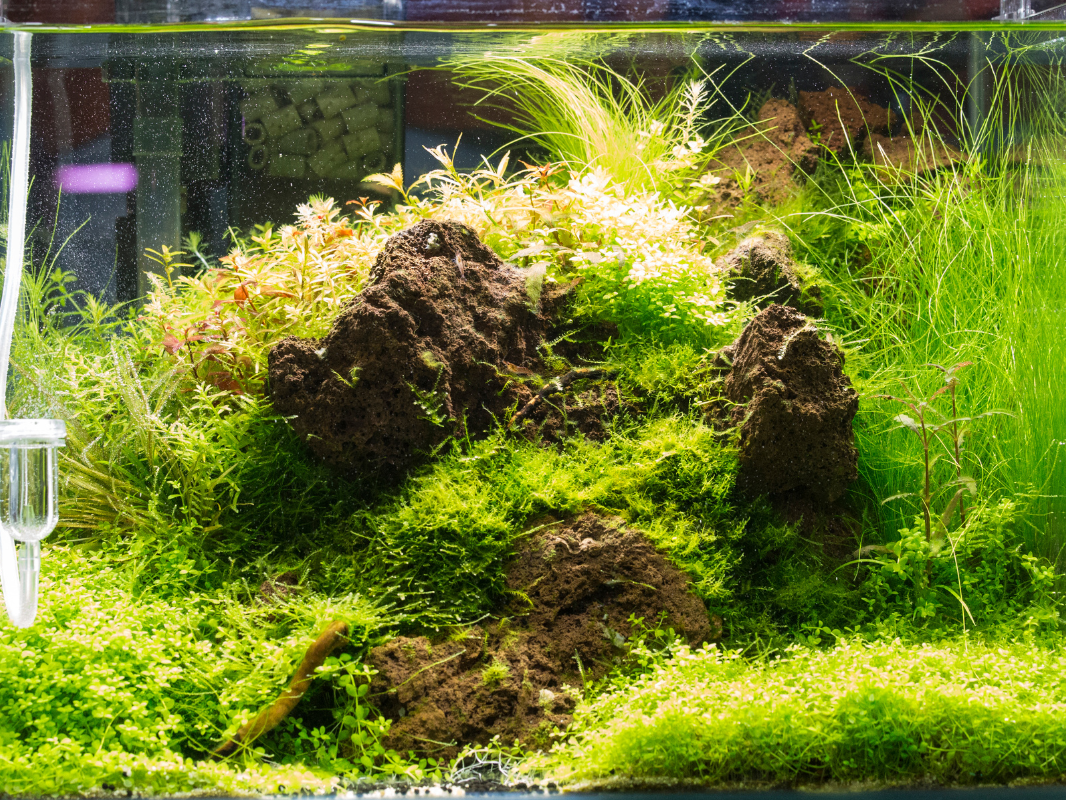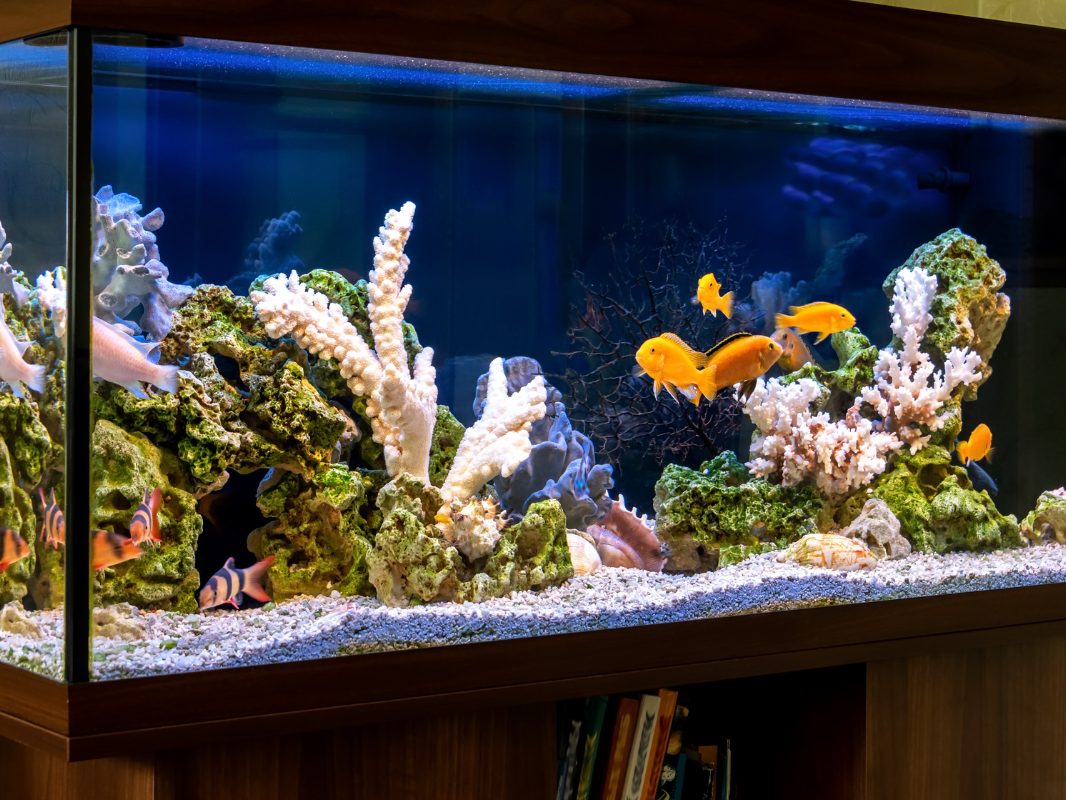Diving into the world of freshwater fish is like exploring a vibrant underwater universe right in your living room. Whether you’re a seasoned aquarist or just starting, the diversity of freshwater fish species offers something for everyone. From the peaceful glide of a Neon Tetra to the vibrant dance of a Guppy, these creatures bring a slice of aquatic wonder to our daily lives.
Jump to:
Introduction to Freshwater Fishkeeping
Freshwater fishkeeping isn’t just a hobby; it’s an adventure into a miniature natural world. Over 12.5 million households in the US alone enjoy the tranquility and beauty these aquatic pets bring. But what makes freshwater fish so captivating? It’s their incredible diversity, ease of care, and the sheer joy of creating a thriving aquatic ecosystem at home.
Register for our latest in-depth reviews and product round-ups from the experts
Enter your email address below to receive our twice monthly reviews emails.
By entering your details, you are agreeing to our terms and conditions and privacy policy. You can unsubscribe at any time.
Why Freshwater Fish?
- Accessibility: Freshwater fish are perfect for both beginners and experienced aquarists.
- Variety: From the shimmering Neon Tetra to the dynamic Oscar, there’s a fish for every preference.
- Health Benefits: Studies show that keeping fish can reduce stress and improve mental well-being.
Diversity in Freshwater Fish Species
The world of freshwater fish is astonishingly diverse. This diversity is not just in their appearance but also in their habitats, behaviors, and care requirements. Let’s explore some of the most popular varieties and what makes them unique.
Popular Freshwater Fish Varieties
- Neon Tetra: Known for their vibrant colors and peaceful nature, Neon Tetras are a favorite among beginners. They thrive in groups and add a splash of color to any tank.
- Guppies: These lively and colorful fish are adaptable and easy to care for, making them ideal for new aquarists.
- Oscar: A larger and more intelligent species, Oscars are known for their personality and require a bit more care and attention.
Unique Characteristics
- Color and Pattern: Each species boasts unique colors and patterns, making them a visual treat.
- Behavior: From the schooling nature of Tetras to the solitary Oscar, each fish has its own set of behaviors and social needs.
Caring for Different Freshwater Fish Varieties
Caring for freshwater fish involves more than just feeding them. It’s about creating an environment that mimics their natural habitat and meets their specific needs.
General Care Guidelines
- Tank Setup: Each species requires a specific tank size, water temperature, and pH level.
- Diet: A balanced diet is crucial. While some species are omnivorous, others may require a more specialized diet.
Specific Care Needs
- Neon Tetras: Prefer soft, acidic water and a diet of brine shrimp and worms.
- Guppies: Need consistent water temperatures and a mix of plant and animal-based foods.
- Oscars: Require a carnivorous diet and a larger tank due to their size.
Health and Nutrition
Ensuring the health of your fish is paramount. Regular water changes, monitoring for signs of illness, and providing a nutritious diet are key to a thriving aquarium.
Common Health Issues
- Stress: Symptoms like loss of color or appetite can indicate stress, often caused by poor water quality or incompatible tank mates.
- Disease: Common diseases include fin rot and ich, which can be managed with proper care and medication.
Popular Freshwater Fish for Home Aquariums
Choosing the right fish for your aquarium is a blend of personal preference and practicality. Here are some top picks for home aquariums, each with its unique appeal.
Top Varieties for Home Aquariums
- Mollies: Small and peaceful, Mollies adapt well to various water conditions and are easy to care for.
- Zebra Danios: Perfect for beginners, these hardy fish are easy to care for and make great additions to community tanks.
- Platies: Known for their vibrant colors, Platies are active, peaceful, and thrive in groups.
Creating a Community Aquarium
- Compatibility: Choose fish that are compatible in size and temperament to avoid conflicts.
- Tank Environment: Decorate your tank with plants and hiding spots to mimic natural habitats and reduce stress.
Aquarium Setup and Maintenance
Setting up and maintaining your aquarium is crucial for the health of your fish. Here’s what you need to know:
Tank Setup Essentials
- Size: Ensure the tank is large enough for your fish to swim and grow comfortably.
- Filtration: A good filtration system keeps the water clean and oxygenated.
- Lighting and Decoration: Proper lighting and natural decorations like plants and rocks create a comfortable environment for your fish.
Regular Maintenance
- Water Changes: Regular water changes are essential to remove toxins and keep the water fresh.
- Cleaning: Clean the tank, filter, and decorations regularly to prevent algae growth and maintain a healthy environment.
Embarking on the journey of freshwater fishkeeping is not just about owning pets; it’s about creating a living, breathing ecosystem that brings a piece of nature into your home. With the right knowledge and care, you can enjoy the beauty and tranquility of these amazing creatures for years to come.
Ready to dive into the world of freshwater fish? Remember, research is key, and with a little patience and care, you’ll be on your way to creating a thriving aquatic paradise.
Breeding and Lifecycle of Freshwater Fish
Continuing our exploration of freshwater fish varieties, let’s delve into the fascinating aspects of their breeding and lifecycle. Understanding these elements can greatly enhance your fishkeeping experience, allowing you to witness the miracle of life in your aquarium.
Breeding Practices in Freshwater Fish
Breeding freshwater fish can be a rewarding aspect of fishkeeping. It allows aquarists to observe the natural behaviors and lifecycle of their fish.
Key Considerations for Successful Breeding
- Species-Specific Requirements: Each fish species has unique breeding conditions.
- Tank Environment: Creating a conducive environment is crucial for breeding.
- Behavioral Observations: Understanding mating behaviors helps in successful breeding.
Lifecycle Stages of Common Freshwater Fish
Understanding the lifecycle of your fish is key to providing them with the right care at each stage.
Egg to Fry
- Egg Laying: Many freshwater fish are egg layers, with varying incubation periods.
- Fry Care: Fry require special care with appropriate food and tank conditions.
Juvenile to Adult
- Growth: Monitoring growth and adjusting tank conditions accordingly is vital.
- Maturity: Recognizing when fish reach maturity helps in managing breeding and social dynamics.
Challenges in Freshwater Fishkeeping
While fishkeeping is a rewarding hobby, it comes with its own set of challenges. Being prepared for these can make your fishkeeping journey smoother.
Common Issues and Solutions
- Water Quality: Maintaining optimal water conditions is crucial. Regular testing and water changes are key.
- Disease Prevention: Understanding common fish diseases and their prevention can save a lot of trouble.
- Behavioral Problems: Aggression or stress in fish can often be mitigated by proper tank setup and species compatibility.
Frequently Asked Questions
Here are some common questions asked by fellow aquarists, sourced from popular online forums and the “People Also Ask” section on Bing.
FAQs on Freshwater Fish Varieties
- Bettas, Guppies, and Tetras are among the easiest due to their hardiness and simple dietary needs.
- It’s recommended to change 10-20% of the water weekly to maintain optimal conditions.
- Yes, but it’s important to ensure they are compatible in terms of size, temperament, and environmental needs.
Martin Cochran
Dive into fish care with Martin, your guide from the coastal beauty of Brighton. He shares tips on keeping your aquatic companions happy and healthy. Join him on a fin-tastic journey where every swim is a voyage of joy. Trust Martin for a smooth sailing aquatic experience.




